Filter by

Theories in and of Mathematics Education Theory Strands in German Speaking C…
This survey provides an overview of German meta-discourse on theories and mathematics education as a scientific discipline, from the 1970s to the 1990s. Two theory strands are offered: a semiotic view related to Peirce and Wittgenstein (presented by Willibald Dörfler), and the theory of learning activity by Joachim Lompscher (presented by Regina Bruder and Oliver Schmitt). By networking the tw…
- Edition
- -
- ISBN/ISSN
- 978-3-319-42589-4
- Collation
- Springer Cham
- Series Title
- -
- Call Number
- -
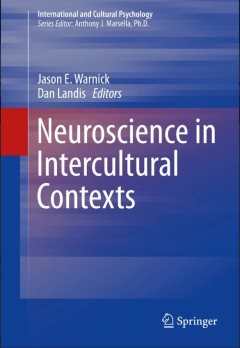
Neuroscience in Intercultural Contexts
This breakthrough volume brings together cultural neuroscience and intercultural relations in an expansive presentation. Its selected topics in reasoning, memory, and other key cognitive areas bridge the neuroscience behind culture-related phenomena with the complex social processes involved in seeing the world through the perspective of others. Coverage ranges beyond the familiar paradigms of …
- Edition
- 1
- ISBN/ISSN
- 1571-5507
- Collation
- XXX, 263
- Series Title
- International and Cultural Psychology
- Call Number
- -
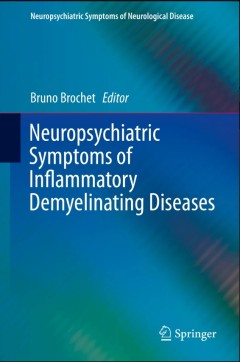
Neuropsychiatric Symptoms of Inflammatory Demyelinating Diseases
This book is an up-to-date, comprehensive review of the neuropsychiatry of multiple sclerosis and related diseases, by active authorities in the field, with an emphasis on diagnosis and management. Critical appraisal of the methodological aspects and limitations of the current research on the neuropsychiatry of demyelinating diseases is included, and unanswered questions are highlighted. Pharma…
- Edition
- 1
- ISBN/ISSN
- 2196-2898
- Collation
- XII, 283
- Series Title
- Neuropsychiatric Symptoms of Neurological Disease
- Call Number
- -

The World of Bereavement Cultural Perspectives on Death in Families
This visionary work explores the sensitive balance between the personal and private aspects of grief, the social and cultural variables that unite communities in bereavement, and the universal experience of loss. Its global journey takes readers into the processes of coping, ritual, and belief across established and emerging nations, indigenous cultures, and countries undergoing major upheavals…
- Edition
- -
- ISBN/ISSN
- 978-3-319-13945-6
- Collation
- -
- Series Title
- -
- Call Number
- -

Neural Correlates of Quality During Perception of Audiovisual Stimuli
This book presents a new approach to examining the perceived quality of audiovisual sequences. It uses electroencephalography (EEG) to explain in detail how user quality judgments are formed within a test participant, and what the physiological implications might be when subjects are exposed to lower quality media. The book redefines the experimental paradigms of using EEG in the area of qualit…
- Edition
- 1
- ISBN/ISSN
- 978-981-10-0247-2
- Collation
- XIV, 88
- Series Title
- T-Labs Series in Telecommunication Services
- Call Number
- -
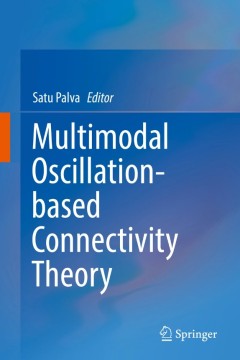
Multimodal Oscillation-based Connectivity Theory
Systems-level neuronal mechanisms that coordinate the temporally, anatomically, and functionally distributed neuronal activity into coherent cognitive operations in the human brain have remained poorly understood. In humans, neuronal oscillations and synchronization can be recorded non-invasively with electro- and magnetoencephalography (EEG and MEG) that have excellent temporal resolution and …
- Edition
- 1
- ISBN/ISSN
- 978-3-319-32263-6
- Collation
- VII, 147
- Series Title
- -
- Call Number
- -
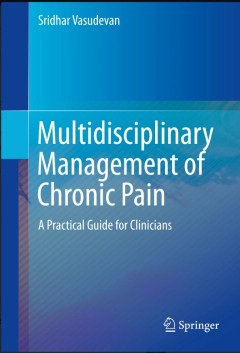
Multidisciplinary Management of Chronic Pain:A Practical Guide for Clinicians
This book is a 'must have' resource in every physician/clinician practice setting."--Martin Grabois, M.D., Professor of PM&R, Baylor College of Medicine, Houston,TX. Dr. Vasudevan draws upon an accumulated reservoir of clinical expertise to provide readers with an up-to-date and highly readable guide to multidisciplinary pain management. . . . If only this book was available years ago"--Fran…
- Edition
- 1
- ISBN/ISSN
- 978-3-319-20321-8
- Collation
- XXV, 228
- Series Title
- -
- Call Number
- -
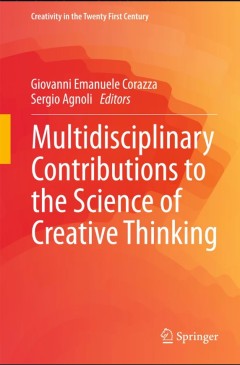
Multidisciplinary Contributions to the Science of Creative Thinking
This book offers a multidisciplinary and multi-domain approach to the most recent research results in the field of creative thinking and creativity, authored by renowned international experts. By presenting contributions from different scientific and artistic domains, the book offers a comprehensive description of the state of the art on creativity research. Specifically, the chapters are organ…
- Edition
- 1
- ISBN/ISSN
- 978-981-287-617-1
- Collation
- VIII, 348
- Series Title
- Creativity in the Twenty First Century
- Call Number
- -

Emotion in Group Decision and Negotiation
The volume offers an exploration of methods for analysis of emotion in negotiation, such as cognitive modeling, discourse analysis, all testing, subsequent multidimensional scaling, impression rating, and graph modeling for conflict resolution, reasonable and unreasonable disagreement. It covers activities, such as business negotiation, conflict solving, bargaining, task management meetings,…
- Edition
- -
- ISBN/ISSN
- 978-94-017-9963-8
- Collation
- XI, 218
- Series Title
- -
- Call Number
- -

Emerging and Young Adulthood Multiple Perspectives, Diverse Narratives
The most distinctive feature of the Second Edition is its theoretical orientation coupled with a focus on understanding emerging and young adulthood from multiple perspectives. The updated and expanded book offers readers an opportunity to “listen to the voices” of emerging and young adults, parents, and employers, which is key to understanding this particular developmental period. In addit…
- Edition
- -
- ISBN/ISSN
- 978-3-319-11301-2
- Collation
- XII, 222
- Series Title
- -
- Call Number
- -
 Computer Science, Information & General Works
Computer Science, Information & General Works  Philosophy & Psychology
Philosophy & Psychology  Religion
Religion  Social Sciences
Social Sciences  Language
Language  Pure Science
Pure Science  Applied Sciences
Applied Sciences  Art & Recreation
Art & Recreation  Literature
Literature  History & Geography
History & Geography